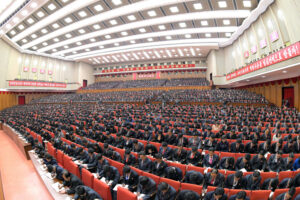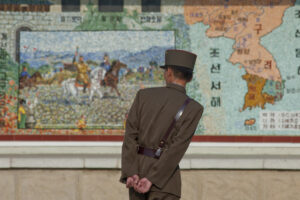What has always startled me about North Koreans inside and outside their country is their remarkable adaptability to new technology. Progressists to the marrow of their bones, they seem to accept enthusiastically and unconditionally computer gadgets and pesticides, mobile phones and crystal meth, showing no sign of resistance or trace of conservatism. In the North Korean mindset, the old is bad, the new is good: period.
Leaving aside the question of whether this uncritical embrace of the new is always good, this attitude is also reflected in North Korean cultural discourse, which espouses a staunch belief in technological progress.
What has always startled me about North Koreans inside and outside their country is their remarkable adaptability to new technology. Progressists to the marrow of their bones, they seem to accept enthusiastically and unconditionally computer gadgets and pesticides, mobile phones and crystal meth, showing no sign of resistance or trace of conservatism. In the North Korean mindset, the old is bad, the new is good: period.
Leaving aside the question of whether this uncritical embrace of the new is always good, this attitude is also reflected in North Korean cultural discourse, which espouses a staunch belief in technological progress.
Become a member for less than $4 per week.
Unlimited access to all of NK News: reporting, investigations, analysis
The NK News Daily Update, an email newsletter to keep you in the loop
Searchable archive of all content, photo galleries, special columns
Contact NK News reporters with tips or requests for reporting
Get unlimited access to all NK News content, including original reporting, investigations, and analyses by our team of DPRK experts.
Subscribe now
All major cards accepted. No commitments – you can cancel any time.










